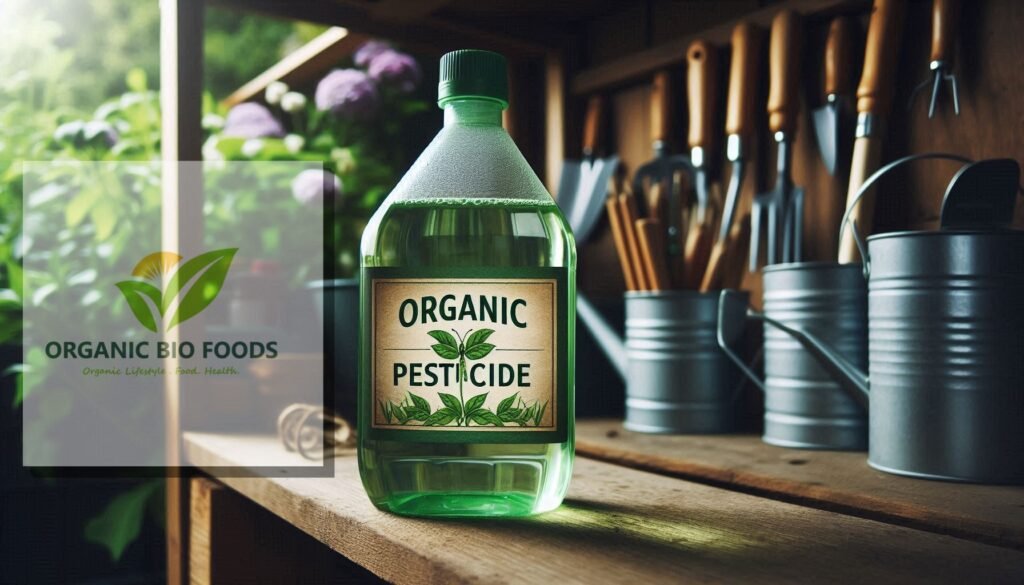Gardening is a fulfilling activity, especially when you see your plants grow healthy and thrive. But pests can quickly turn your garden from green and beautiful to a nightmare. The challenge comes when you want to keep your garden organic and avoid synthetic chemicals that can harm the environment, beneficial insects, and your plants. This is where botanical insecticides come into play. Botanical insecticides are derived from plants and are a great alternative for keeping pests in check while maintaining a natural and organic garden.
In this post, we’ll dive deep into three of the most potent botanical insecticides that you can use in your organic garden. These are Neem, Pyrethrin, and Rotenone, and we will explore what makes them so effective and how to use them safely.
1. Pyrethrin: A Quick-Acting, All-Natural Insect Killer
Pyrethrin is a fast-acting botanical insecticide that is extracted from the dried flowers of Chrysanthemum cinerariifolium, commonly known as the Dalmatian chrysanthemum. It’s a natural neurotoxin for insects, affecting their nervous systems and causing almost instant paralysis and death.
How Does Pyrethrin Work?
Pyrethrin works by attacking the nervous systems of insects, causing them to stop moving and eventually die. It’s effective against a wide range of pests, including aphids, caterpillars, ants, and mosquitoes. Unlike synthetic insecticides, pyrethrin breaks down quickly in sunlight and air, which makes it a safe option for your organic garden .
However, while pyrethrin is natural, it is still potent, and care should be taken when using it, as it can also affect beneficial insects like bees if applied recklessly. It’s crucial to apply it in the early morning or late evening when bees are less active to avoid harming pollinators.
How to Use Pyrethrin in Your Garden:
- Dilution: Pyrethrin is usually sold in concentrated form and needs to be diluted with water before use.
- Application: Spray the mixture onto your plants, focusing on areas where you’ve spotted pests. Reapply as needed, but avoid using it during the hottest part of the day, as this can increase its breakdown speed.
Benefits of Pyrethrin:
- Fast-acting, providing almost immediate results.
- Effective against a wide variety of garden pests.
- Safe to use on most garden plants, including vegetables and flowers.
2. Neem Oil: The Powerhouse of Organic Pest Control
Neem oil is one of the most popular and widely used botanical insecticides in organic gardening. Extracted from the seeds of the neem tree (Azadirachta indica), this oil has been a go-to solution for farmers and gardeners worldwide for centuries.
How Does Neem Oil Work?
Neem oil contains a compound called azadirachtin, which disrupts the life cycle of insects. It affects the pest’s ability to feed, grow, and reproduce, making it highly effective against a variety of garden pests such as aphids, mites, whiteflies, and caterpillars.
One of the best things about neem oil is that it doesn’t harm beneficial insects like bees and ladybugs, as long as it’s applied correctly. According to the National Pesticide Information Center, neem oil works on insects that eat your plants, meaning it only affects pests that consume treated plants .
How to Use Neem Oil in Your Garden:
- Mixing: Mix neem oil with water and a few drops of dish soap (to help it stick to plant leaves).
- Application: Spray the solution on your plants, covering both the tops and bottoms of the leaves. Reapply every 7 to 14 days or after rain.
Benefits of Neem Oil:
- Targets a wide range of pests without affecting beneficial insects.
- Safe for use on fruits, vegetables, and ornamental plants.
- Acts as both an insecticide and a fungicide, which can help prevent diseases like powdery mildew.
3. Rotenone: An Effective Botanical Option with Caution
Rotenone is another potent botanical insecticide that has been used for years in organic gardening. It is derived from the roots of several tropical plants, particularly those in the Leguminosae family, like the Derris and Lonchocarpus species.
How Does Rotenone Work?
Rotenone works by interfering with the cellular respiration of insects, which essentially means it disrupts the way their cells use oxygen. This leads to paralysis and eventual death. Rotenone is highly effective against beetles, aphids, caterpillars, and certain larvae .
However, despite its natural origins, there are some environmental concerns associated with rotenone. It can be toxic to fish and other aquatic life, so it’s important to use it responsibly, avoiding runoff into water bodies.
How to Use Rotenone in Your Garden:
- Application: Rotenone is typically available as a powder or dust. Sprinkle it onto your plants, especially where you’ve noticed insect damage.
- Reapplication: It’s recommended to reapply after heavy rain, as water can wash away the insecticide.
Benefits of Rotenone:
- Effective against a wide range of pests, including those that are difficult to control, like beetles and caterpillars.
- Works well on both ornamentals and edible plants.
Chart Comparing Different Botanical Insecticides
| Botanical Insecticide | Target Pests | Key Benefits | Caution Points |
|---|---|---|---|
| Neem Oil | Aphids, mites, caterpillars | Dual action: insecticide + fungicide | May need frequent application; avoid direct sun |
| Pyrethrin | Aphids, caterpillars, ants | Fast-acting; quick degradation | Can harm beneficial insects if not used carefully |
| Rotenone | Beetles, aphids, caterpillars | Highly effective on tough pests | Toxic to fish; use cautiously near water |
Best Practices for Using Botanical Insecticides
While botanical insecticides are natural and often safer than synthetic chemicals, they still need to be used wisely to protect both your garden and the environment. Here are some tips:
- Targeted Application: Only apply botanical insecticides where pests are present. Avoid spraying indiscriminately over your entire garden.
- Timing is Key: Apply insecticides in the early morning or late evening when beneficial insects like bees are less active.
- Avoid Overuse: Even natural insecticides can build up in the soil or harm non-targeted species if overused.
- Consider Companion Planting: Pairing plants that naturally repel pests can reduce the need for insecticides altogether. For example, marigolds repel aphids, while basil deters flies and mosquitoes.
Conclusion
If you’re serious about keeping your organic garden pest-free, using botanical insecticidescan be highly effective. They offer a natural alternative to synthetic chemicals and, when used correctly, can protect your plants without harming the environment or beneficial insects.
However, even though these insecticides are natural, it’s essential to use them carefully and responsibly. Always follow label instructions, avoid over-application, and keep an eye on the health of your garden. By doing so, you can maintain a flourishing organic garden that’s healthy for you and the ecosystem.
Sources:
- National Pesticide Information Center. “Neem Oil General Fact Sheet.” NPIC.
- Gardeners Path. “Best Organic Pest Control Options for Your Garden.” Gardeners Path.
- Michigan State University. “Rotenone as an Organic Pesticide.” MSU Extension.
- National Pesticide Information Center. “Pyrethrins and Pyrethroids General Fact Sheet.” NPIC.
- The Organic Institute. “The Benefits of Neem in Organic Gardening.” Organic Institute.








